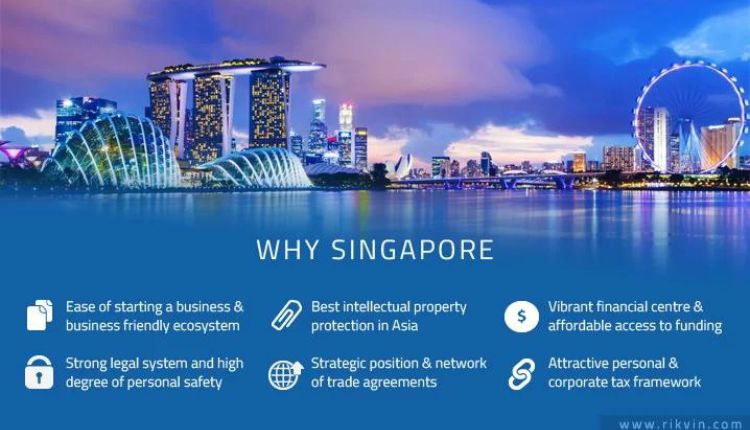
Why Relocate Business To Singapore?
A business relocation involves changing the location of your office. This can be across cities within the same country or even to another country. Relocating your business can lead to various monetary and non-monetary benefits. A number of businesses have relocated to Singapore to take advantage of its competitive corporate tax rate and business-friendly policies. It has become the gateway to the booming Asian markets for global businesses.
1. Access To Global Markets
Relocating a business means shifting the company’s operations from one location to another. This could be within the same city or from one country to another. Typically, companies relocate when they feel that there will be a substantial improvement in their monetary prospects as a result of the relocation. In Singapore, the re-domiciling process allows foreign corporate entities to relocate their headquarters to the city state by either setting up a subsidiary in Singapore or converting the existing parent company into a Singapore holding company with one or more operating subsidiaries. The city-state’s robust corporate tax regime and network of double-tax treaties, consumer readiness, strategic geographical location, talent resources and competitive workforce make it an attractive business relocation destination.
In addition to its robust corporate tax structure, Singapore also offers a broad range of personal income reliefs for expats. This is a key reason why so many global companies like Dyson have chosen to Relocate Business Singapore.
2. High-Quality Workforce
In an era when talent competitiveness is the key to a nation’s economic success, Singapore continues to draw top international talent. The city-state placed first in Asia Pacific and second globally in the 2021 INSEAD Global Talent Competitiveness Index, with an emphasis on high-level knowledge skills that drive innovation and growth. The ONE Pass is designed to attract highly skilled overseas workers and offer career flexibility, stability and simplified relocation processes. While this is an effective strategy for talent recruitment, some companies express concern about foreign workers outpacing local talent.
To address these concerns, businesses can work with a professional commercial relocation company to develop a detailed moving plan and communicate it clearly to employees. This will minimise downtime and help ensure essential services continue to function throughout the move.
3. World-Class Arbitration Facility
The Singapore international arbitration centre (SIAC) offers a full range of dispute resolution services, including arbitration, mediation and expert determination. This makes the centre a leading choice for arbitration proceedings in Asia.
If the Redomiciliation Regime is not an option for the FCE, the shareholders of the FCE will have to set up a new Singapore operating company as its wholly owned subsidiary (a “SG Op Co”) and transfer its business, assets and liabilities from the existing foreign entity to the SG Hold Co by one of the two methods described above. During this process, the FCE will have to review its contracts and decide which ones need to be transferred and which employees should move to Singapore. These transfers may be subject to non-assignment and/or novation clauses in the contracts. Hence, the FCE will need to obtain consent from its counterparties.
4. Competitive Taxes
Relocating your business to Singapore is a great way to gain access to the region’s rapidly growing markets. It’s also home to one of the world’s lowest corporate tax rates and a strong regulatory environment. Moreover, it is an excellent alternative headquarters location with robust accounting and filing standards. The government also has more than 90 networks of Double Tax Avoidance Agreements (DTAs), which help to lower your company’s tax burden by preventing double taxation.
However, the relocation process can be expensive for enterprises that rely on regional suppliers. Additionally, the move may strain commercial ties with local clients. Hence, it’s important to understand the hidden expenses associated with the move before making the decision. EntrePass holders must also meet certain milestones to renew their visa.
5. Ease Of Doing Business
Singapore’s competitive corporate tax regime, comprehensive network of double tax treaties, and strategic geographical location make it a popular choice for businesses looking to expand into Asia. It’s also a highly developed trading hub with strong financial infrastructure and a stable economic environment. As a result, many companies that relocate to Singapore see significant business growth. However, it’s important to understand the hidden costs of relocating your company to Singapore before you move.
For example, relocating to Singapore will require you to renegotiate contracts with your vendors and clients. Additionally, you’ll need to review and update any intangible assets that your company uses (e.g., software). Lastly, you’ll need to obtain the appropriate work visas for your employees. This will help ensure that your relocation doesn’t disrupt your business operations.
Relocate Business to Singapore via Immigration@SG
Singapore is a top choice for foreign companies looking to expand in Asia. For example, Dyson, a British company famous for its high-tech household appliances, moved its global headquarters to Singapore. When it comes to consumer readiness, logistics infrastructure, tax reliefs and obligations, this city-state ticks all the right boxes for businesses seeking to relocate in Asia.
If you are interested in setting up your business or company in Singapore, call Immigration@SG at +65 6493 1830. Immigration@SG has helped many global entrepreneurs and business owners set up their base in Singapore for over 10 years. Proficient in immigration laws, they also help these entrepreneurs and business owners and their families work and live in Singapore via Work Pass and Singapore PR applications. So, take advantage of the opportunities in Singapore easily with Immigration@SG today!




